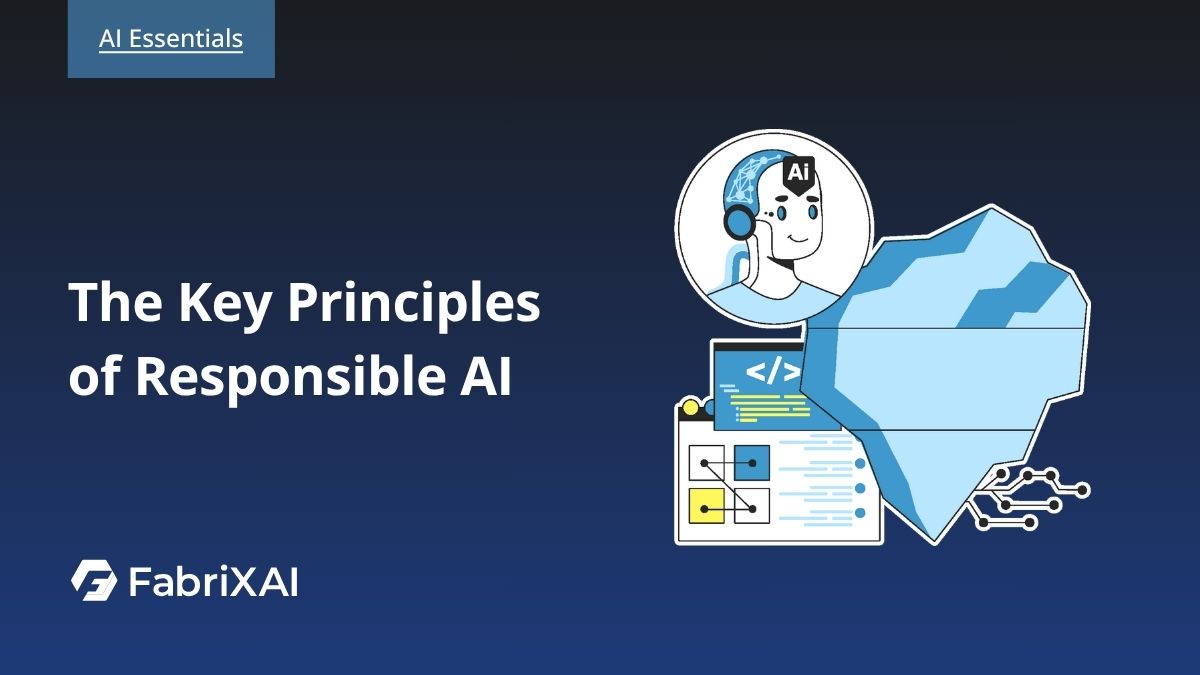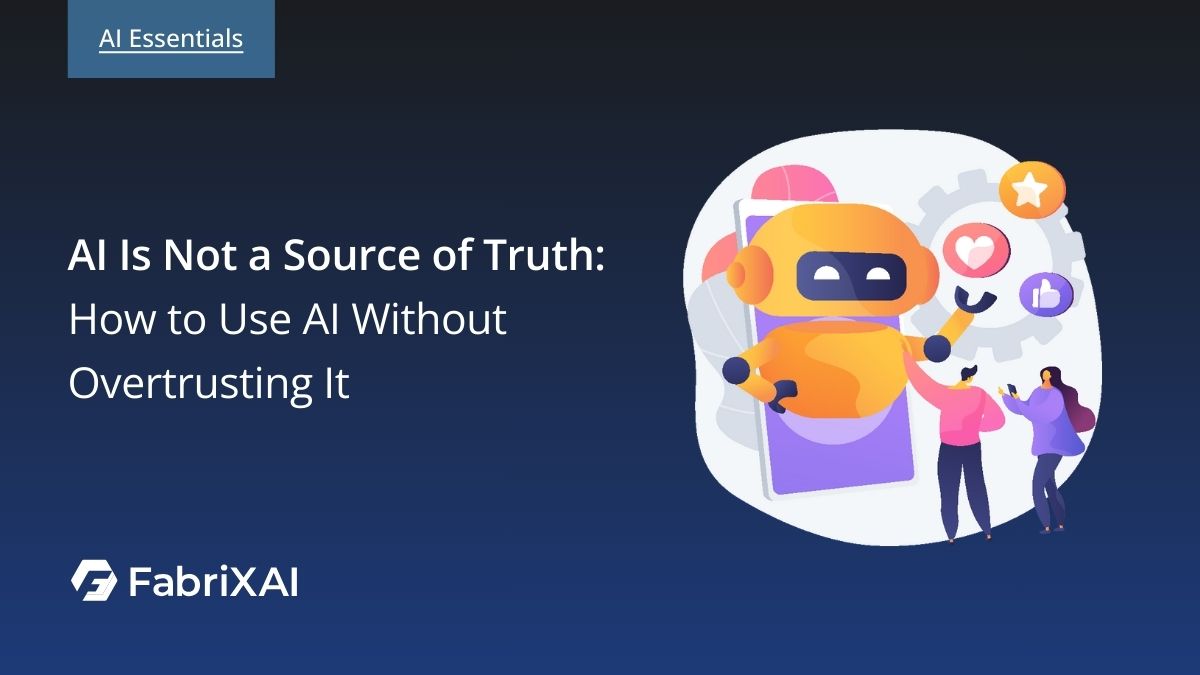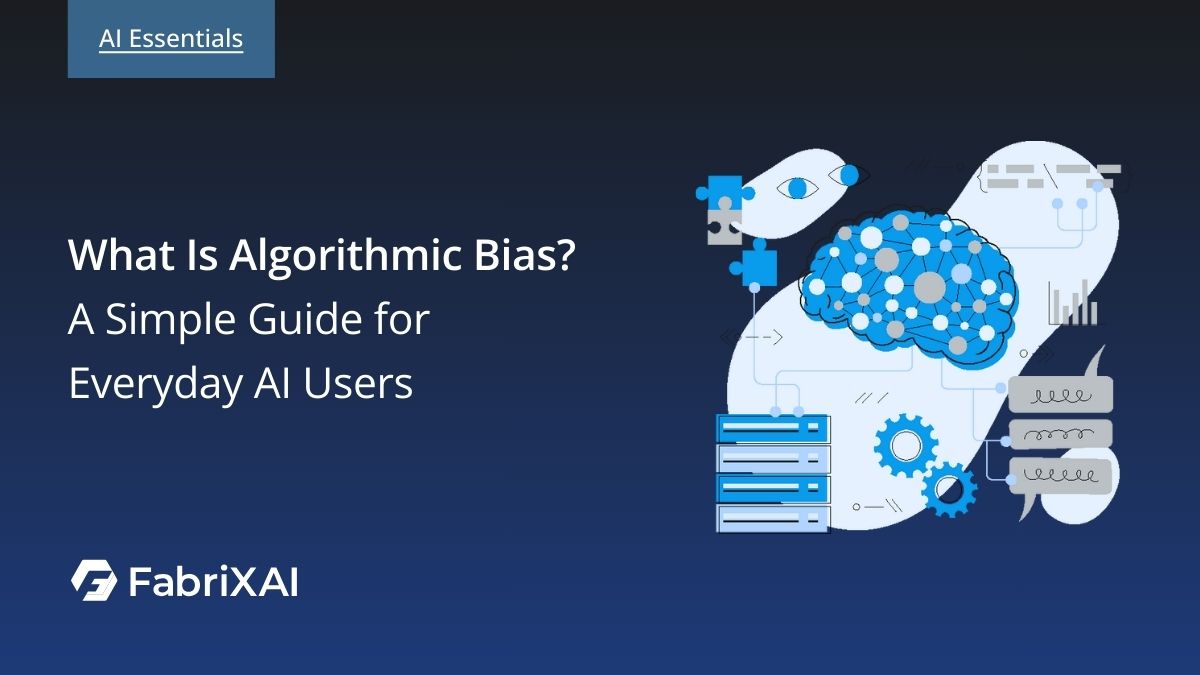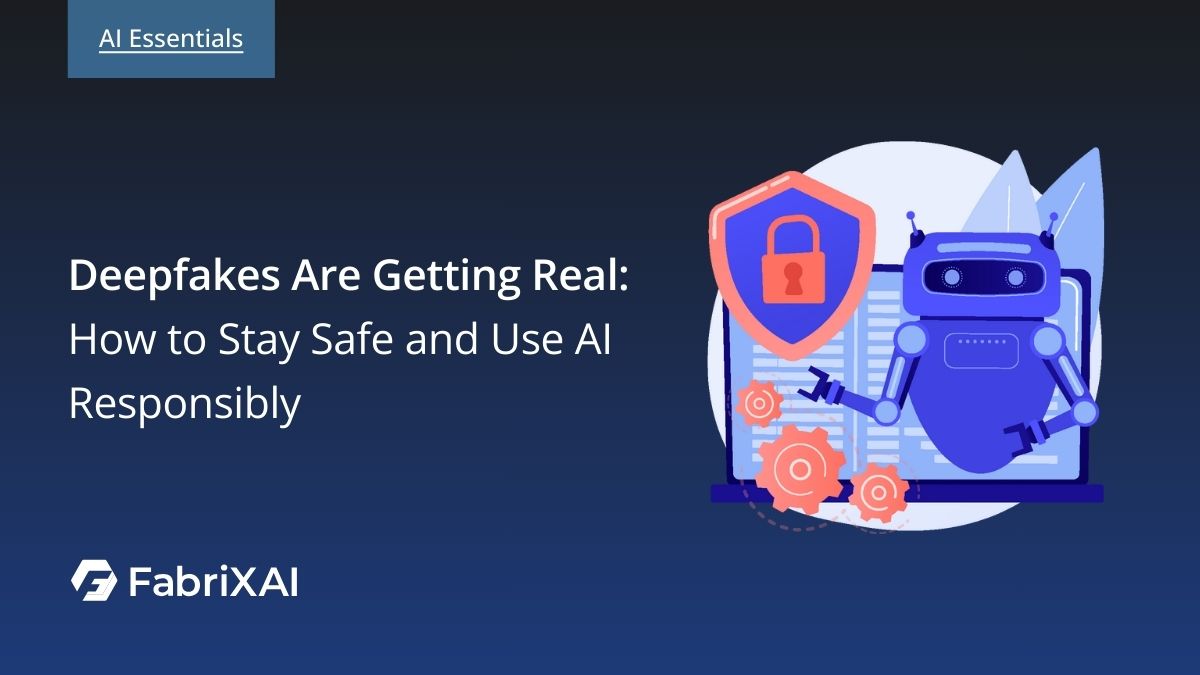The Key Principles of Responsible AI

Responsible AI is guided by five core principles that act as an ethical compass for how AI systems are developed, deployed, and used. These principles are not abstract ideals—they’re practical tools for building trust, minimizing harm, and making smarter decisions about AI in everyday contexts.
Understanding these principles helps you ask the right questions and influence responsible choices, even if you’re not the one coding the system.
💡 New to the concept of Responsible AI?
Check out our beginner-friendly guide—What Is Responsible AI? A Beginner-Friendly Guide—to explore the core principles and practical applications.
The Five core Principles of Responsible AI
The five core principles of responsible AI work together to create a comprehensive framework for ethical AI development. These principles aren't just theoretical concepts—they're practical guidelines that should inform every decision about AI systems
Fairness – Avoiding Bias and Discrimination
Fairness means ensuring AI systems treat all individuals and groups equitably, without discrimination based on characteristics like race, gender, age, or socioeconomic status. This principle goes beyond simply avoiding obvious discrimination—it requires actively designing systems that promote equitable outcomes.
At its core, fairness in AI involves two key concepts: equal treatment and equal outcomes. Equal treatment focuses on ensuring the AI system processes data and makes decisions using the same criteria for everyone. Equal outcomes, on the other hand, focuses on ensuring that the results of AI decisions don't systematically disadvantage certain groups.
For example, a fair hiring AI system would evaluate all candidates using the same job-relevant criteria, regardless of their background. It would also be designed to ensure that qualified candidates from different demographic groups have equal opportunities to be selected for interviews.
Transparency – Explainability and Clarity
Transparency means making AI systems understandable and explainable to users, stakeholders, and those affected by AI decisions. This principle encompasses two related concepts: explainability and interpretability.
Explainability refers to the ability to provide clear reasons for specific AI decisions. When an AI system recommends a particular action or makes a decision, explainability ensures that users can understand why that decision was made.
Interpretability involves making the overall AI process understandable by humans. This means providing meaningful information about how the AI system works, what data it uses, and how it processes that data to reach conclusions.
For instance, if an AI system denies a loan application, transparency would require the system to explain which factors led to that decision in terms the applicant can understand.
Accountability – Assigning Responsibility
Accountability means ensuring that humans remain responsible for AI system outcomes and that there are clear mechanisms for addressing problems when they occur. This principle addresses the "accountability gap" that can emerge when AI systems make decisions—since AI systems themselves cannot be held responsible, clear human accountability must be established.
Accountability involves several key elements: identifying who is responsible for AI decisions, establishing processes for monitoring and auditing AI systems, and creating mechanisms for people to challenge or appeal AI decisions.
For example, if an AI system makes a mistake in a medical diagnosis, there must be clear processes for identifying what went wrong, who is responsible for fixing it, and how to prevent similar mistakes in the future.
Privacy & Security – Protecting Personal Data
Privacy and security involve protecting personal information and ensuring that AI systems handle data responsibly. This principle is especially important because AI systems often require large amounts of personal data to function effectively.
Privacy protection includes implementing data minimization (collecting only the data necessary for the AI's purpose), obtaining proper consent for data use, and giving individuals control over their personal information.
Security involves protecting AI systems and their data from unauthorized access, breaches, and malicious attacks. This includes implementing encryption, access controls, and other security measures to safeguard sensitive information.
For instance, a healthcare AI system must protect patient medical records through encryption and strict access controls, while also ensuring patients understand how their data is being used and can control its use.
Reliability & Safety – Ensuring Consistent, Robust Performance
Reliability and safety mean ensuring that AI systems perform consistently and safely, especially in critical applications. This principle focuses on building AI systems that function correctly under various conditions and fail gracefully when problems occur.
Reliability involves designing AI systems that produce consistent, accurate results over time and across different scenarios. Safety involves ensuring that AI systems don't cause harm, even when they encounter unexpected situations or fail.
For example, an autonomous vehicle's AI system must reliably detect obstacles and make safe driving decisions even in challenging conditions like heavy rain or unusual road situations.
Fairness as a Foundational Principle
Among the five core principles, fairness holds a special place as the foundational principle of responsible AI. Here's why fairness is so fundamental:
1. Fairness Supports All the Other Principles
Fairness isn’t just one of many principles—it’s the foundation.
- You can be transparent, but still biased.
- You can be accountable, but to unfair outcomes.
- You can protect privacy, but only for certain groups.
- You can be reliable, but still consistently unfair.
Without fairness, the other principles lose their meaning.
2. Fairness Affects Real People's Lives
AI is already making decisions about things like: Who gets a job interview; What medical treatment someone receives; Whether a loan is approved. If those decisions are based on biased data or flawed logic, people can be unfairly excluded or harmed.
The consequences of unfair AI aren't just theoretical—they affect real people's lives every day.
3. Fairness Must Be Built In from the Start
Unlike some other principles that can be addressed after system development, fairness must be built into AI systems from the ground up. This "fairness by design" approach requires considering equity and bias mitigation throughout the entire AI development process, from data collection to algorithm design to deployment and monitoring.
4. Fairness Builds Trust and Adoption
When people believe an AI system is fair, they’re more likely to use it, trust it, and benefit from it. Fair systems build public confidence—and that’s essential for the long-term success of AI in any field.
Why These Principles Matter Together
These five principles work together as an integrated framework. A truly responsible AI system must address all five principles simultaneously:
- Fairness without transparency can hide bias and discrimination
- Transparency without accountability provides explanations but no recourse for problems
- Accountability without privacy protection can violate individual rights
- Privacy without reliability can result in systems that fail when people need them most
- Reliability without fairness can consistently discriminate against certain groups
Understanding these principles and how they interact is essential for anyone working with AI systems. Whether you're making decisions about AI procurement, setting organizational policies, or collaborating with technical teams, these principles provide the foundation for responsible AI development and deployment.
Quick Matching Quiz: Which Principle Applies?
To help you understand how these principles apply in real-world situations, let's explore some everyday scenarios where responsible AI principles come into play. Consider how you would match each principle to these situations:
The answers are waiting for you at the end—don’t miss them!
What's Next?
FabriXAI is a trusted partner for organizations building responsible AI. With expertise across strategy, data science, and ethics, we help enterprises implement fair, transparent, and accountable AI systems—aligned with global standards.
Learn more about our work at FabriXAI.
Frequently Asked Questions (FAQs)
Q1: What Are the Core Principles of Responsible AI?
Responsible AI is built on five core principles: Fairness, Transparency, Accountability, Privacy & Security, and Reliability & Safety. These principles guide how AI systems should be designed, developed, and used to ensure they are ethical, trustworthy, and beneficial to everyone.
Q2: Why Is Fairness Considered the Most Important Principle in Responsible AI?
Fairness is foundational because it underpins all other principles. A system can be transparent but still biased, or reliable but still discriminatory. Fairness ensures AI systems don’t disadvantage people based on race, gender, or background—and that everyone has equal opportunity to benefit from AI.
Q3: What Does Transparency in AI Actually Mean?
Transparency means making AI systems understandable. It includes explainability—clearly communicating why a decision was made—and interpretability—helping users grasp how the system works overall. This allows users to trust AI decisions and understand their impact.
Q4: How Can AI Be Made Accountable?
AI systems can’t be held accountable—but people can. Accountability means assigning human responsibility for AI outcomes, setting up systems for auditing and monitoring, and allowing users to question or challenge decisions when mistakes happen.
Q5: What Role Do Privacy and Reliability Play in Responsible AI?
AI must protect users’ personal data and work safely in the real world. Privacy involves controlling how data is collected and used, while reliability ensures AI systems perform accurately and safely—even in unexpected situations. Together, they safeguard trust and prevent harm.



